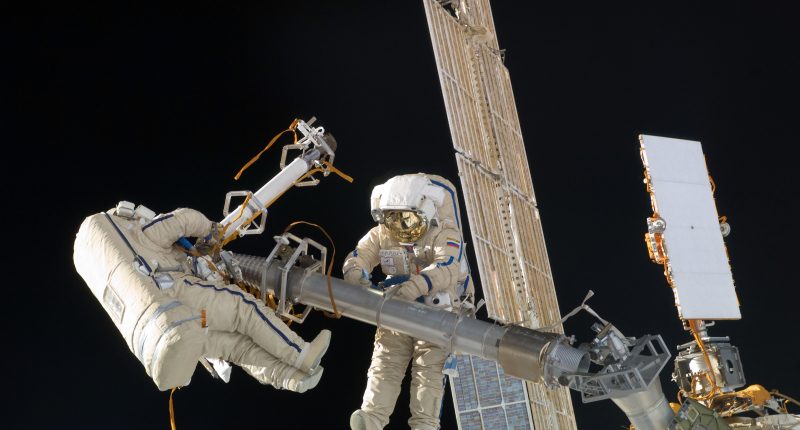RUSSIAN Cosmonaut Oleg Kononenko has set a new world record for the longest time spent in space.
The 59-year-old has logged a total of 878 days and 12 hours – or nearly two-and-a-half-years – outside of Earth’s atmosphere.
Kononenko reached the milestone onboard the International Space Station on Sunday morning, while on his fifth mission to the orbital outpost.
The previous record holder was cosmonaut Gennady Padalka, who spent 878 days, 11 hours, 29 minutes and 48 seconds in space over the course of five missions between 1998 and 2015.
Kononenko will remain there until September 2024.
Once he returns to Earth, Kononenko will have clocked 1,110 days – just over three years – and will become the first human to have spent 1,000 days in space.
READ MORE ON SPACE
“I fly into space to do what I love, not to set records. I’ve dreamt of and aspired to become a cosmonaut since I was a child.
“That interest – the opportunity to fly into space, to live and work in orbit – motivates me to continue flying,” he told Russian news agency TASS.
Kononenko added: “I am proud of all my achievements, but I am more proud that the record for the total duration of human stay in space is still held by a Russian cosmonaut.”
The cosmonaut’s current trip to the ISS began on 15 September last year alongside Roscosmos fellow Nikolai Chub and Nasa astronaut Loral O’Hara.
Most read in Tech
Kononenko said video calls to his family and regular exercise on board meant he did not feel “deprived or isolated”.
However, he has felt the time apart from his children.
But he added: “It is only upon returning home that the realisation comes that for hundreds of days in my absence the children have been growing up without a papa.
“No one will return this time to me.”
How does space effect the body?

The length of time Kononenko has already spent – and will spend – in space takes a significant toll on the human body.
The usual duration of an ISS flight is roughly six months, which even then has a huge physical impacts, such as:
- Redistribution of fluid around body due to long periods of weightlessness
- Bone density loss in critical areas such as lower limbs and spine
- Muscle atrophy
Humans in space lose between 1 and 1.5 per cent of their mineral bone density.
Although ISS astronauts spend an average of two hours a day exercising, muscle loss is unavoidable in space.
It takes several years to recover from a six-month spaceflight.
There can be ongoing health concerns long after astronauts have returned to Earth, including:
- Higher risk of bone fracture
- Increase in erectile dysfunction
- Cancer risk due to radiation exposure









